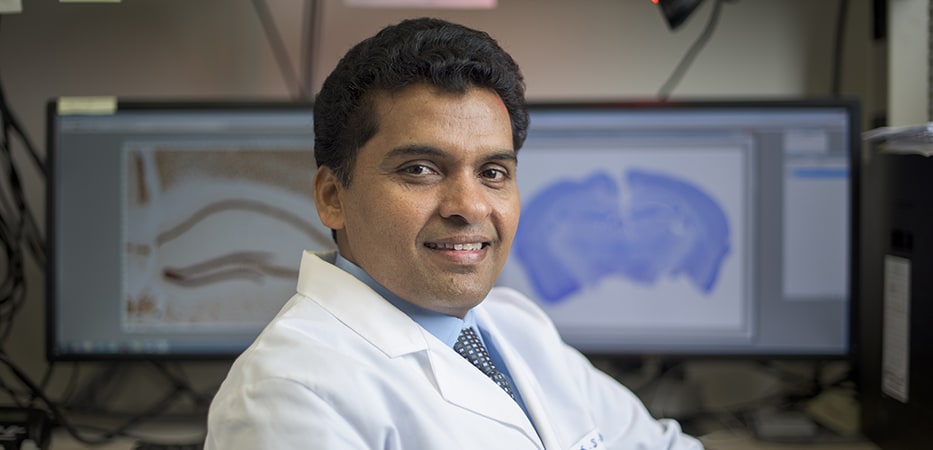Three faculty members receive College of Medicine 2021 Pilot Grant Funding
Vytas Bankaitis, PhD, Distinguished Professor in the Department of Molecular and Cellular Medicine and E.L. Wehner-Welch Foundation Chair in Chemistry; Mendell Rimer, PhD, associate professor in the Department of Neuroscience and Experimental Therapeutics; and Joseph Rutkowski, PhD, assistant professor in the Department of Medical Physiology, were awarded the Texas A&M University College of Medicine’s Pilot Grant Funding for 2021.
The Pilot Funding Program, sponsored by the College of Medicine’s Office of Research, is intended to expand research programs of tenure and non-tenure track research or clinical faculty into new areas. In only its second year, the program provides resources to generate compelling preliminary data that can be leveraged to successfully compete for new National Institutes of Health (NIH) grants. Although the program’s main goal is to increase the college’s NIH portfolio, proposals that target other federal or state agencies are also considered. The Office of Research supports awardees with $40,000 over a one-year period. Faculty members’ departments can also provide matching funds.
Bankaitis’ grant is titled “Combating Fungal Infections by Targeting Inositol Lipid Signaling.” His proposal is a collaboration with Tatyana Igumenova, PhD, associate professor in the Department of Biochemistry and Biophysics at the Texas A&M College of Agriculture and Life Sciences, and is designed to identify much-needed novel anti-fungal compounds. This effort builds upon the discovery by the Bankaitis laboratory of potent and exquisitely selective small molecule inhibitors that target a novel yeast protein called Sec14. The Sec14 protein is highly conserved by dangerous fungal pathogens, and its activity is essential for their virulence. The goal of the pilot award is to leverage new insights gained by the Bankaitis and Igumenova groups in order to improve the design of next-generation compounds that effectively target and inhibit the Sec14 proteins of these pathogens.
Rimer’s grant is titled “Therapeutic potential of increasing lymphangiogenesis in an animal model of ALS.” His project will leverage the expertise of Michelle Hook, PhD, associate professor in the Department of Neuroscience and Experimental Therapeutics, and Mariappan Muthuchamy, PhD, professor in Department of Medical Physiology, and will assess whether enhancing lymphatics in muscle and spinal cord tissue normalizes the inflammation seen in amyotrophic lateral sclerosis (ALS).
Rutkowski’s research project, titled “Host Lung Lymphatic Immune Regulation of Mycobacterium tuberculosis Infection,” is a joint project with Robert Watson, PhD, MPH, assistant professor in the Department of Microbial Pathogenesis and Immunology, that integrates the expertise of both labs. The team will identify the mechanisms by which lung lymphatic vessels shape the immune response to control Mycobacterium tuberculosis replication and disease progression. Future studies will target these mechanisms in an effort to enhance the host immune response to tuberculosis infection.
“The Office of Research is excited about the interest that the pilot grants have generated among the faculty,” said Hubert Amrein, PhD, professor in the Department of Molecular and Cellular Medicine and Senior Associate Dean of Research at the Texas A&M College of Medicine. “Nine applications were submitted in 2021 and evaluated by the Research Advisory Committee. We are looking forward to the outcomes of these collaborative research initiatives and are eagerly anticipating a return on these investments in the form of new NIH awards in the future.”
Article written by Stacy De Leon
Media contact: media@tamu.edu


